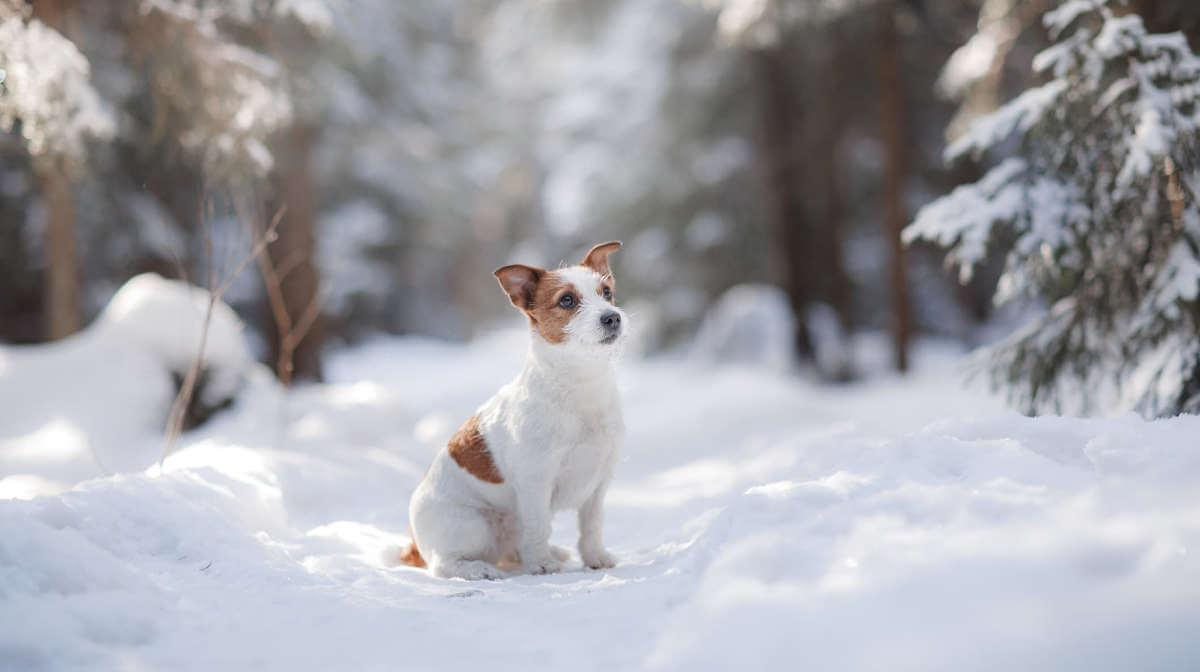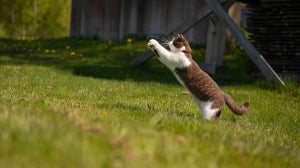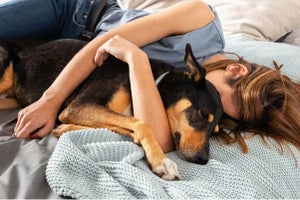
Keeping your dog safe in the snowy weather
One of the most exciting aspects of the winter season for humans is snow. Snowball fights and building snowmen bring out the inner child in most people, but is it the same for your pet pooches? Many owners question whether walking or playing with their dogs in snow is enjoyable and safe for their pet.
In this post, James Wellbeloved answers the question ‘do dogs like snow?’ and provides some tips for safely including your pet in the winter fun.
DO DOGS LIKE SNOW?
Much like humans, all dogs are different and have their own preferences; however, dogs do generally love playing in the snow. Pet behaviourists are unsure of what makes dogs enjoy the snow so much but theorise that it is for similar reasons as humans. Snow is a material dogs don’t get to engage with often, making it feel new and exciting when it comes.
Nevertheless, not all dogs will share this love for snow and many of them will tire of playing in it quicker than others. This is especially true of dogs with shorter coats. These dogs will feel the cold more quickly than those with longer fur and so tend to enjoy snow for shorter periods of time.
IS IT SAFE TO ALLOW DOGS IN SNOW?
Although it is generally safe, you must be careful how much time outside you give your dog on snow days. Dogs’ tolerances for cold temperatures vary greatly; smaller, shorter-coated dogs will generally have a lower tolerance than those with longer hair or larger dogs. This means that it is important that you pay attention to your dog’s behaviour when walking them in winter weather. If you fear they may be too cold, take them inside.
If your dog has been out in the snow for a long time and you are concerned, monitor them for signs of hypothermia, such as weakness, shivering, and breathing difficulties. If you are worried your pet might have hypothermia, seek professional advice from a vet immediately.
Furthermore, while dogs with longer coats may enjoy the winter weather for greater periods of time, their fur will also trap large clumps of snow. You will need to remove this, so that your pet doesn’t continue feeling the effects of the cold once they return inside. Be careful when clearing this snow, as pulling at your dog’s fur may cause them discomfort.
PLAY WITH SOME SNOWBALLS
All dogs love a game of catch and snow means your whole environment becomes a potential source of objects to throw for them. Pack snow into balls – although not too firmly – and gently toss them up in the air for your dog to try and catch. You can also throw the snowballs a little further away and get your pooch to chase after them. This is a fun winter activity that also gives your dog a little bit of exercise.
HAVE A SCAVENGER HUNT
Dogs are naturally very good at finding things, because of their evolutionary link to other hunting canine species. Test your dog’s sharp senses with a scavenger hunt and challenge them to find things buried in the snow. This is a fun and low-cost activity for both of you to enjoy, providing your dog with much needed mental and physical stimulation.
Take some dog treats or a few of your pet’s favourite toys and hide these around either your garden or a park. It can be better to use their toys rather than treats in a park, as this will reduce the risk of other, uninvited dogs joining in. When the treats or toys are all hidden, let your dog loose and watch as he hunts for them. Finding the hidden treasures will reward your pet for using their senses properly and make the game even more fun for them.
SPEND SOME TIME INSIDE TOO
As much as dogs enjoy being in the snow, the reduced temperature does mean you’ll need to find ways to play inside too. Activities you can try include:
Indoor scavenger hunts
Practicing or learning tricks
Play fetch by moving the furniture aside in a large room
So, there we have James Wellbeloved’s guide to dogs in snow. Although you need to be careful when taking your dog out in the snow, it provides a great opportunity for some fun with your pet that you should embrace. If you are concerned your dog may have been in the snow for too long, seek professional advice from a vet.









